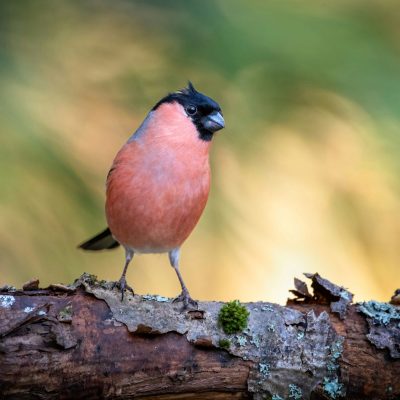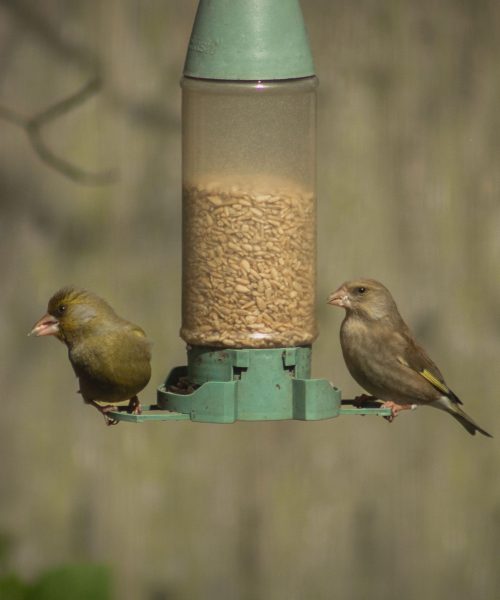Bird Surveys for Planning & Development
Clear, proportionate bird surveys and nesting checks to keep your project compliant, on schedule and planning-ready.
Do you need a Bird Survey?
If your site contains trees, hedgerows, buildings, scrub, grassland or any vegetation suitable for nesting, your LPA may require a bird survey or nesting check before planning can proceed.
What is a Bird Survey?
A bird survey assesses nesting, breeding or wintering activity to determine how works may affect birds on or near a site. It provides the evidence planners need to validate applications and prevents delays linked to the nesting season.

Early Signs a Bird Survey is Needed
LPAs frequently request surveys when:
- vegetation clearance is planned March–August
- trees, scrub, hedgerows or rough grassland are being removed
- barns, outbuildings or roof structures may hold nests
- PEA flagged breeding or wintering potential
- large sites include farmland, brownfield, wetland or coastal zones
- a planner has specifically asked for a bird or nesting assessment
Early confirmation avoids stoppages, redesigns and compliance risk.

What We Deliver
A practical, proportionate, planning-ready service.
| Service | Purpose | Outcome |
|---|---|---|
| Nesting Bird Checks | Confirm presence of active nests before clearance. | Clearance can proceed safely or be rescheduled. |
| Breeding Bird Surveys (BBS) | Evidence for planning during breeding season. | Species data and planning-ready reporting. |
| Wintering Bird Surveys | Required on larger or sensitive sites. | Evidence for planning and mitigation design. |
| Activity Mapping | Identify nesting/foraging hotspots. | Clear constraints and opportunities for design teams. |
| Mitigation & Recommendations | If active nests or constraints are found. | Practical timelines and construction guidance. |
How it Works

Scope & Schedule
Share your site details and programme. We confirm whether a nesting check is enough or if full surveys are needed.

Fieldwork
Nesting checks, breeding bird surveys or wintering surveys depending on season and risk.

Reporting
Planning-ready reports with impact assessment, mitigation options and clear timescales.
Timing & Survey Windows
High-potential sites missing these windows often face delays.
Securing survey capacity early keeps planning timelines predictable.
Breeding Bird Season
March – August
Nesting Checks
year-round (limited if nests are active)
Wintering bird surveys
October - March
Legal Compliance & Planning risk
All wild birds, nests and eggs are protected under the Wildlife & Countryside Act 1981.
For certain species, additional protection applies under the Habitats Regulations.
Missing or incomplete surveys can lead to:
- planning refusal or validation delays
- stop-work notices during nesting season
- enforcement for disturbing active nests
- forced vegetation-clearance rescheduling
- timeline disruption due to seasonal limits
Our role: provide clear, compliant evidence aligned to your programme and design intent.
What You Receive
- confirmation of active/likely inactive nests
- breeding or wintering survey outputs
- species/activity mapping
- practical clearance timing advice
- planning-ready reporting
- mitigation routes for designers and contractors
Evidence for planners. Clear steps for site teams. No unnecessary surveys.
If we find an active nest we can create a works exclusion zone/buffer so that works can continue elsewhere on site without disturbing that specific nest
Case Note
Your Next Step
Need a bird survey or nesting check? We’ll confirm the route and secure the correct survey window
Phone: 0800 494 7479
Email: [email protected]
Bird Survey FAQs
Do I need a bird survey for planning?
You may need one if your project affects vegetation, building fabric or outbuildings that could support nests, or if your PEA indicates nesting/wintering risk. We confirm this quickly from basic site details.
Can we clear vegetation during nesting season (March–August)?
Yes, if a nesting-bird check confirms there are no active nests in the work area. If a nest is active, that small area pauses until fledging.
What counts as an “active nest”?
A nest with eggs or dependent young (including adults sitting or feeding). These are legally protected and cannot be disturbed.
Do all sites need a full Breeding Bird Survey (BBS)?
No. Most small and mid-scale schemes only need a nesting check. BBS is used for larger or sensitive sites.
How long do nesting checks take?
Site time is usually brief. Turnaround depends on access and scale, but reports are kept concise for validation.
Can you advise on clearance timing and method statements?
Yes. We set practical timings and method notes that align with planning requirements and site logistics.
Will this affect BNG?
Bird use can influence habitat value and enhancements. We flag any BNG implications so design can incorporate them early.
When are surveys carried out?
Nesting checks: year-round (but essential March–August).
Breeding Bird Surveys: April–June.
Wintering bird surveys: October–March.
Can work continue if a nest is found?
Yes, outside the immediate nest buffer. We help sequence tasks so your wider programme keeps moving legally.
Will missing the season delay planning?
It can. Early scoping avoids timetable conflicts and reduces the chance of conditions that push you into the next season.
What evidence do planners expect?
Clear presence/likely absence findings, maps where relevant, and proportionate recommendations that protect nests while enabling delivery.
What’s the difference between a nesting check and BBS?
A nesting check confirms whether active nests are present in the work zone. BBS records breeding territories across a wider area to inform planning or BNG.
Do we always need buffers or timing restrictions?
Only when active nests are present or site conditions warrant them. Measures are proportionate to risk.
What information do you need to quote?
A red line plan or postcode, brief description of works, target dates, and any PEA or planner notes. We’ll confirm the right route.



